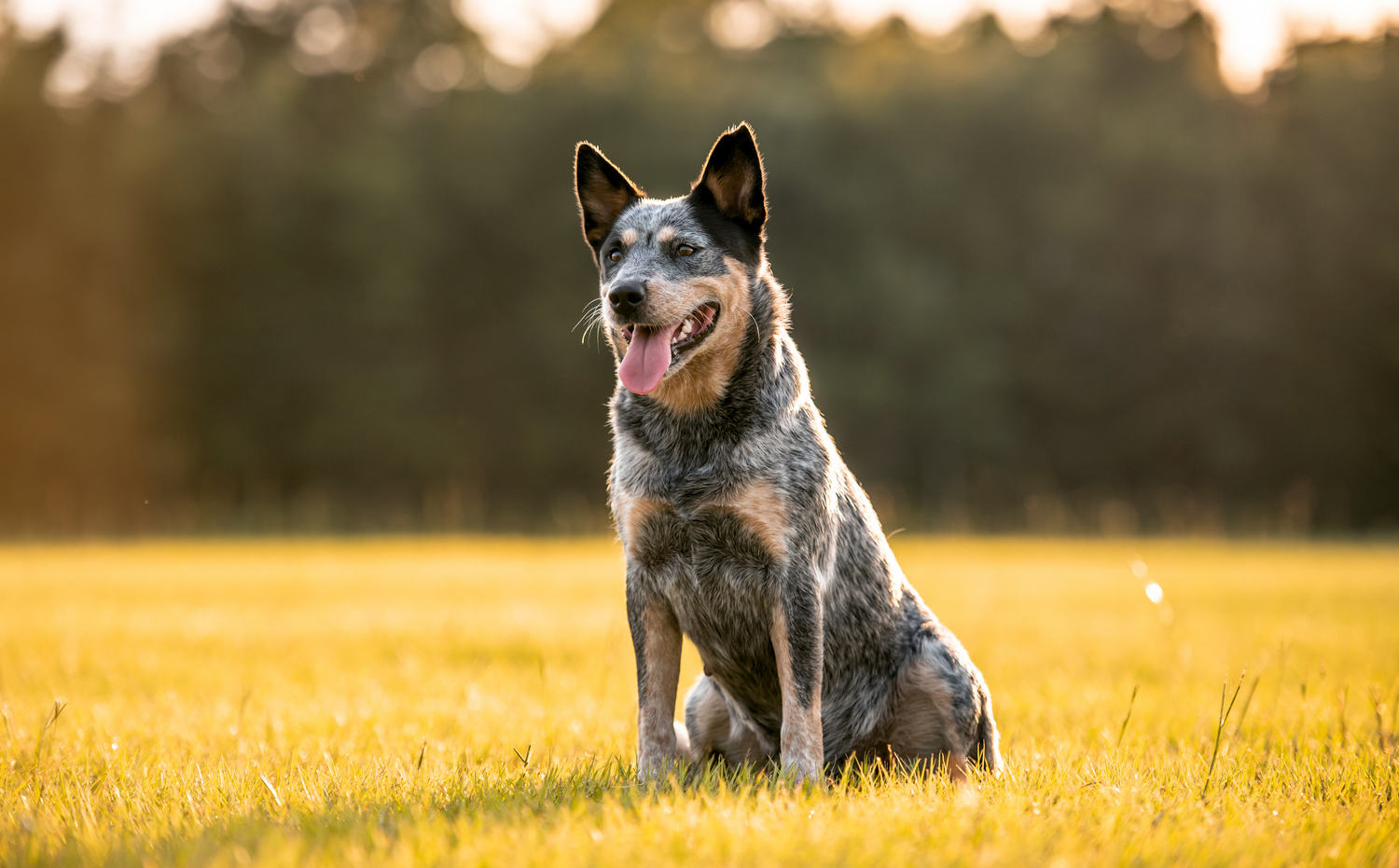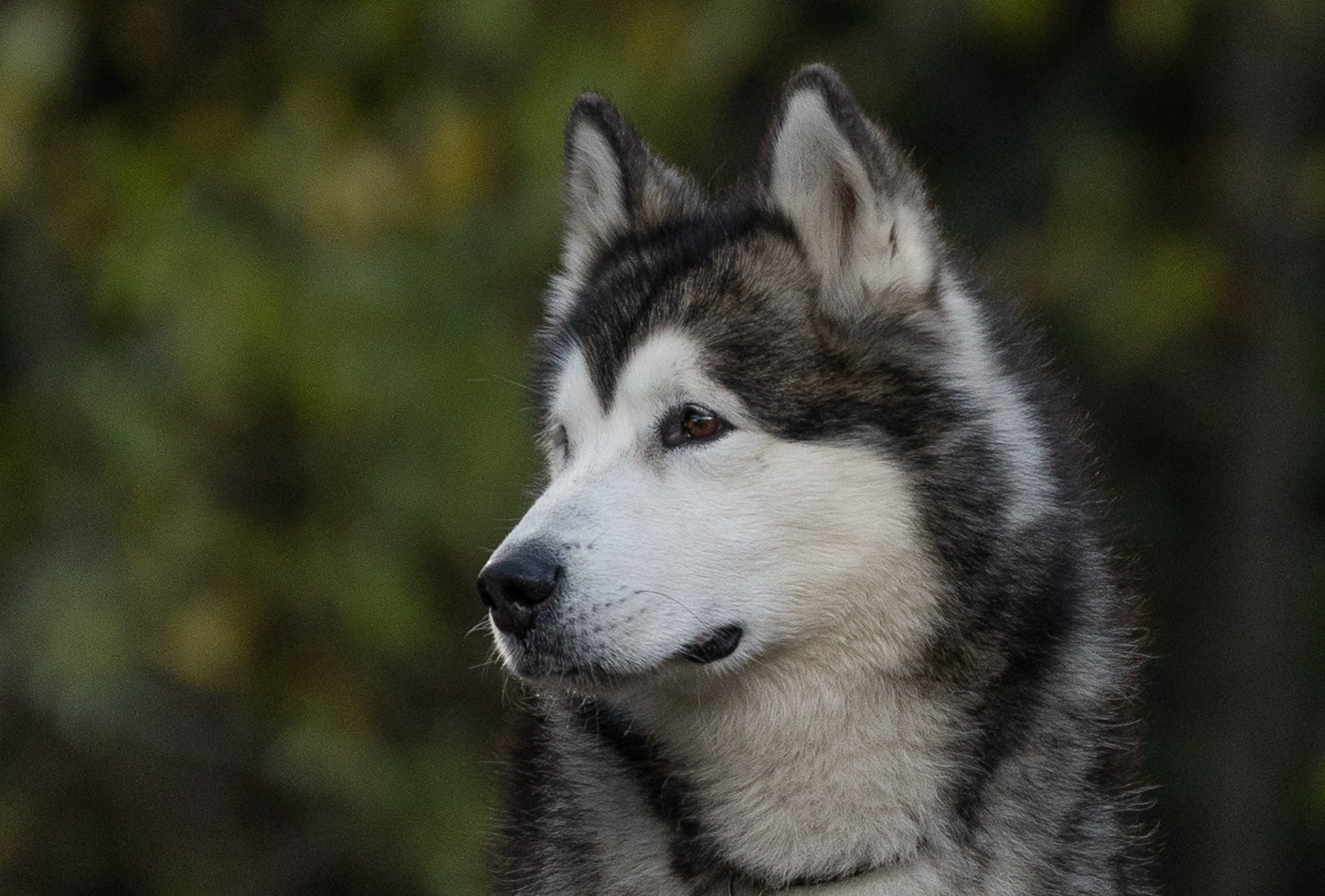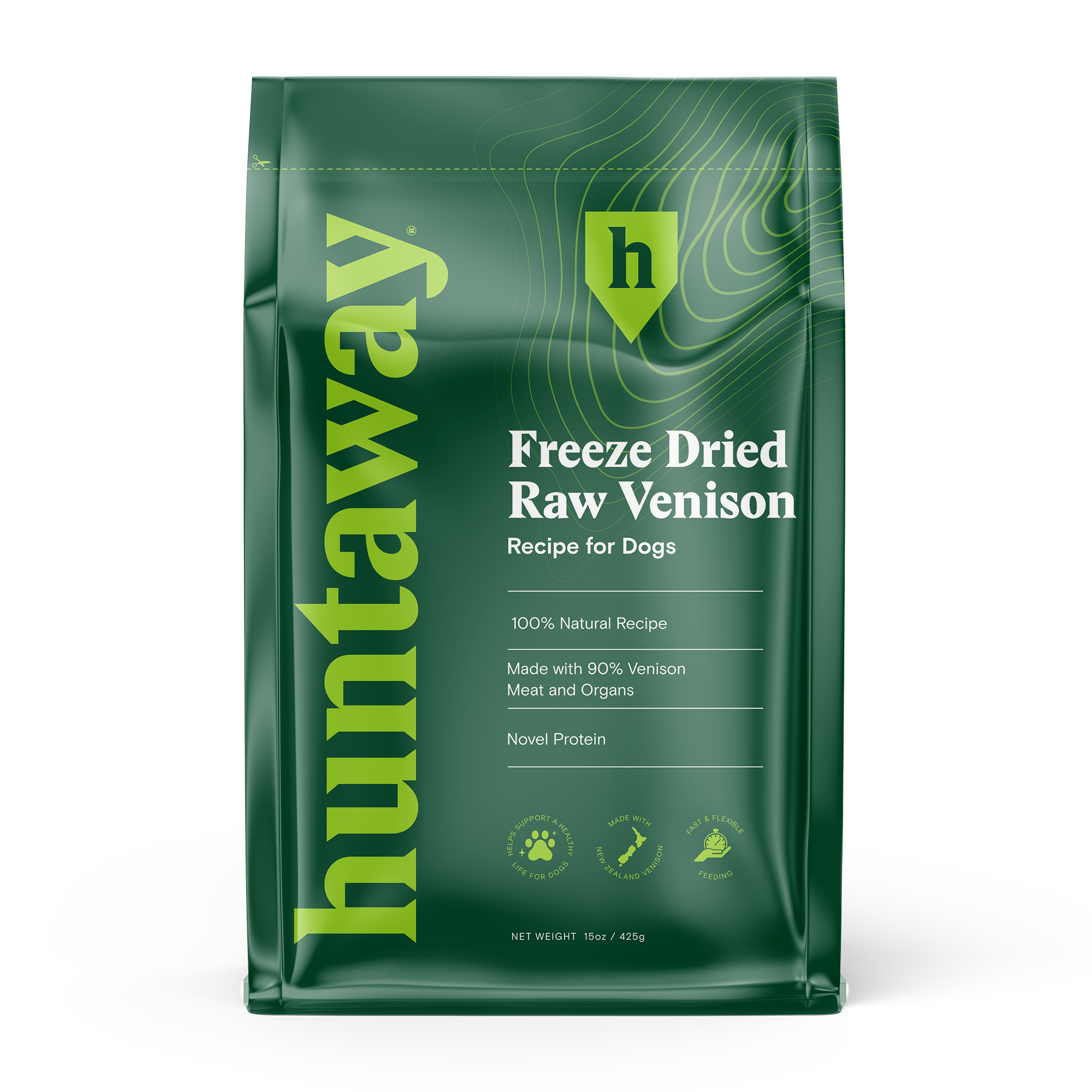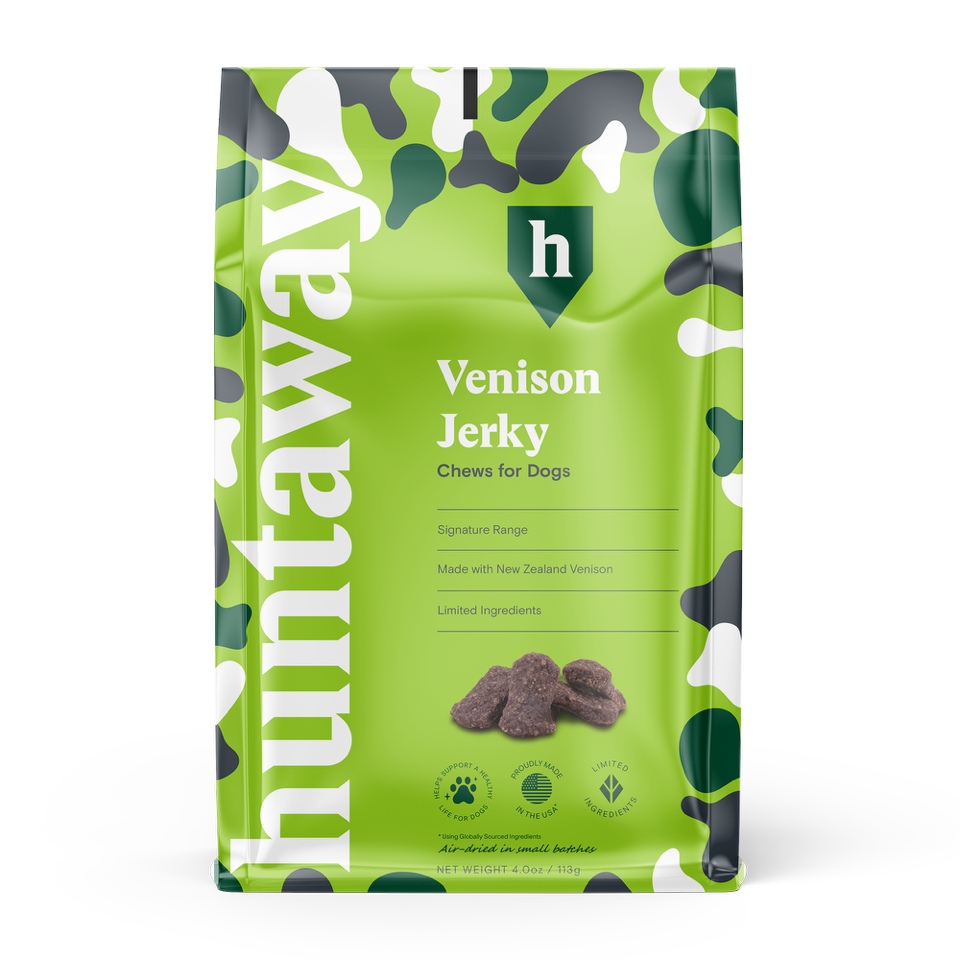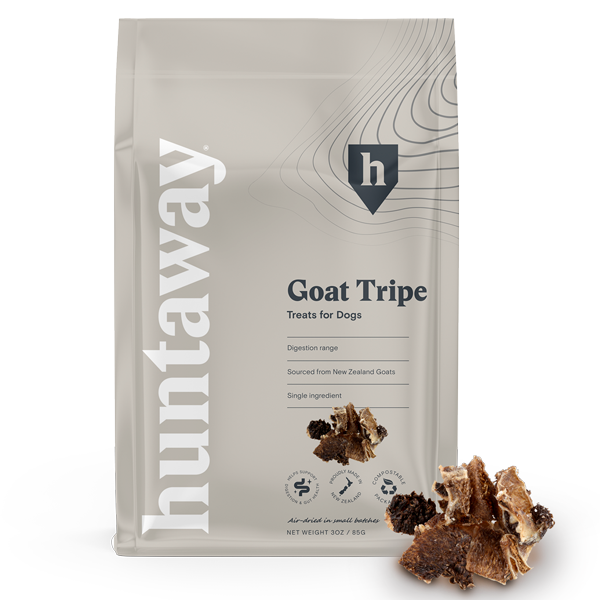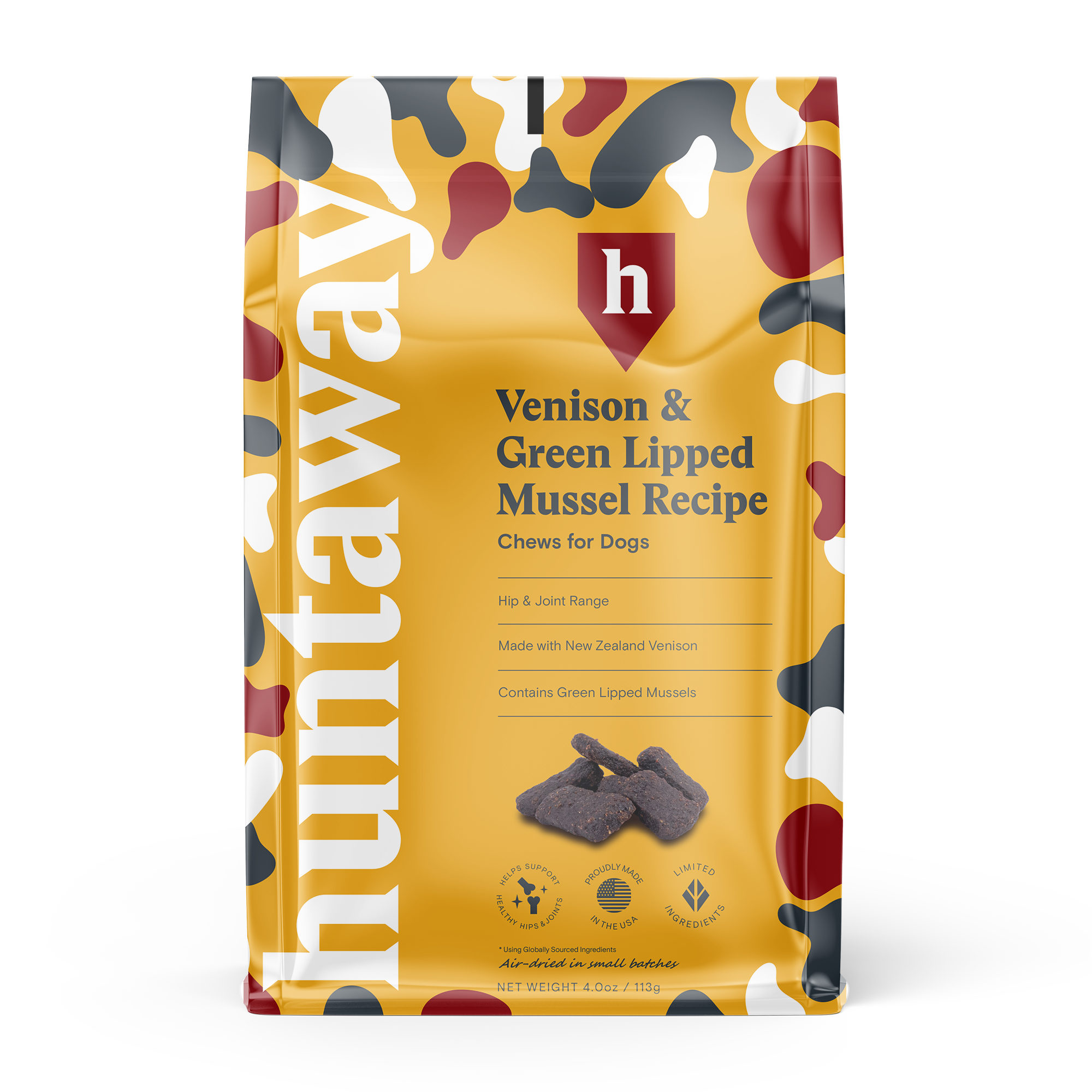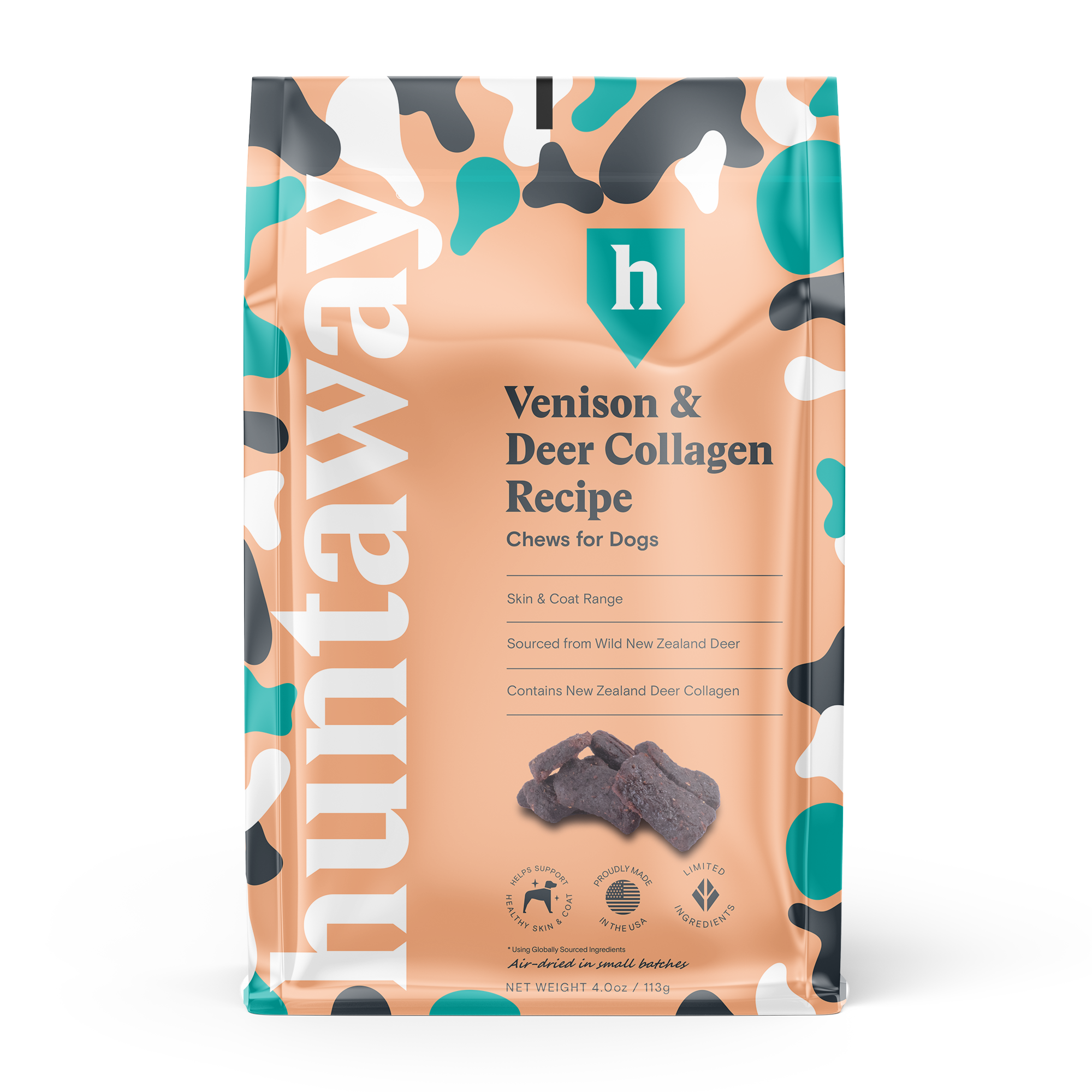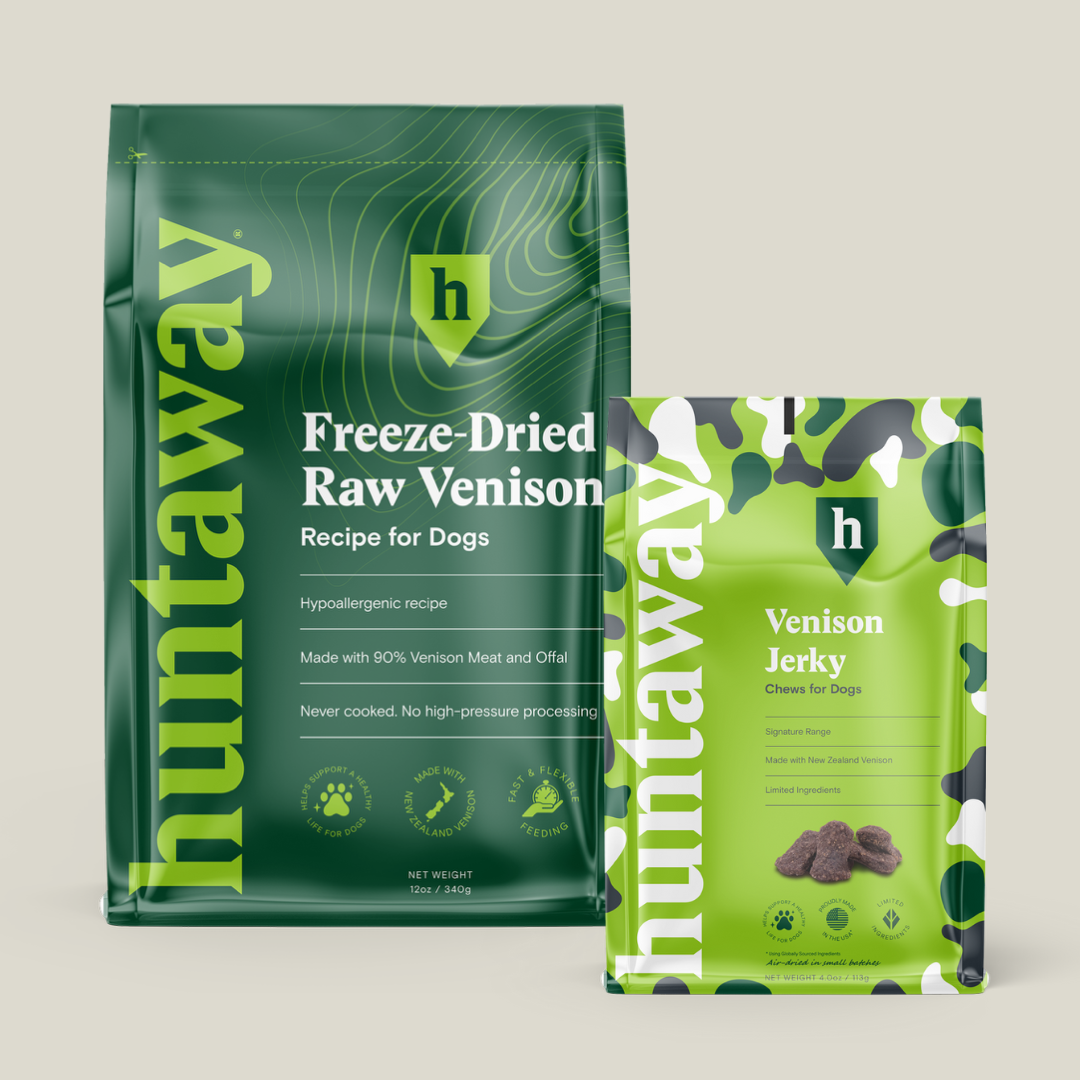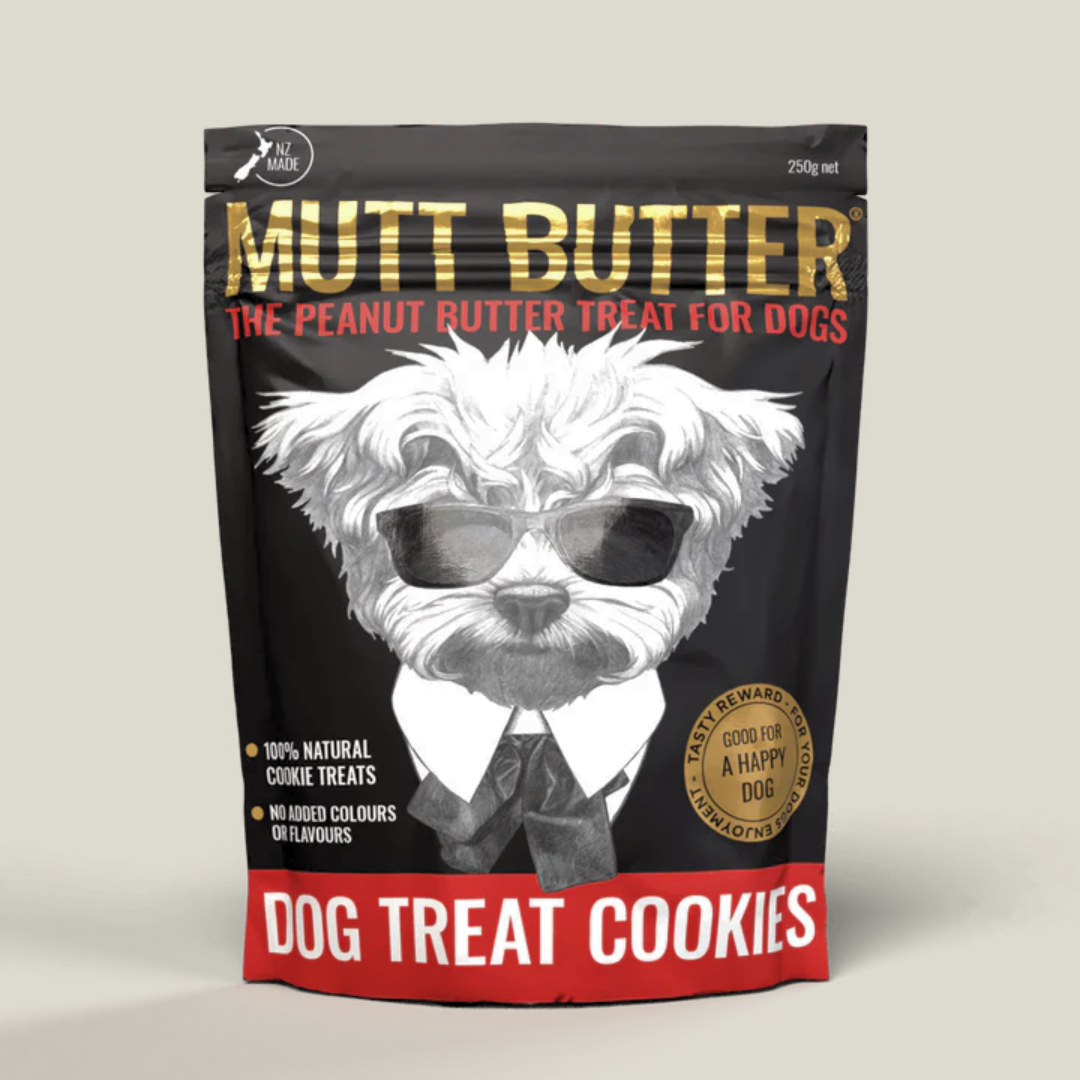Blue Heelers are quick, agile, and high energy dogs. Typically found as working farm dogs, they are always on the move. Being so active, making sure your Blue Heeler has optimal nutrition is key to helping them live and long and vibrant life.
By feeding them an appropriate diet, you can help support certain health conditions that this breed is prone to. Blue Heelers are generally more at risk for hip and elbow dysplasia, cataracts, hypothyroidism and allergies.
Dysplasia
Hip and elbow dysplasia can be especially uncomfortable for high-energy dogs like Blue Heelers since they love being active. It is very important to ensure their joints and bones are properly supported from birth. One of the ways you can do this is by finding a dog food with optimized calcium-to-phosphorus ratios. These nutrients are required for proper bone development from when your Heeler is a puppy, to around 1 year of age. Another way to support their joint health is with foods rich in collagen, chondroitin, and glucosamine like organ meats and bones. These nutrients help support the synovial fluid in your dog’s joints, which provide the cushion between them to stabilize and absorb shock from jumping and playing.

Incorporating chews and treats high in these nutrients is another way to support their bones and joints. Green Lipped Mussels are a great way to provide targeted relief to your pup and give them a yummy treat.
Cataracts
This eye condition can cause blindness and vision problems and usually appears later in life. While we don’t generally think about nutrition and eye health being connected, many nutrients impact our vision, vitamin A, lutein, and zeaxanthin being a few. These are found in leafy greens and organ meats. They protect the eye from damage throughout life, and offer antioxidant support. Throughout a dog’s life, free radicals can build up in the body, which causes damage. Incorporating foods that contain these antioxidants can help protect against that damage.
Hypothyroidism
This thyroid condition occurs when the thyroid is under-functioning. There are a multitude of symptoms for this condition, but getting a vet to diagnose it is the best way to confirm your pup has this. One way to support the thyroid nutritionally is through proper iodine intake. Iodine is critical for the production of thyroid hormones, both T4 and T3. Deficiency and excess have both been linked to thyroid dysfunction. Additionally, strawberries in Huntaway’s latest recipe, are an excellent source of iodine.

Allergies
Another condition that many Blue Heelers suffer from is allergies. This can be for many reasons, one of the most common being that conventional proteins like chicken, turkey, beef, and pork are highly processed in certain foods, which the immune system can mount a defense against. Introducing a novel protein, like venison, and help alleviate allergy symptoms.
Additionally, recipes high in Omega-3’s can help reduce itchiness and redness on the skin. Huntaway uses Extra Virgin Olive Oil, which is very high in omega-3 fatty acids.
Lastly, finding a recipe with little to no fillers (like peas, chickpeas, millet, or other grains) can help provide them with the most biologically appropriate diet they could eat. Read more about how to spot fillers and sneaky recipe additions here.
Do you want to find the best dog food for your Blue Heeler? Whether you want to incorporate raw as a topper, or switch your Blue Heeler over 100%, any amount of fresh food you can add to their bowl will help them live a longer and healthier life.


